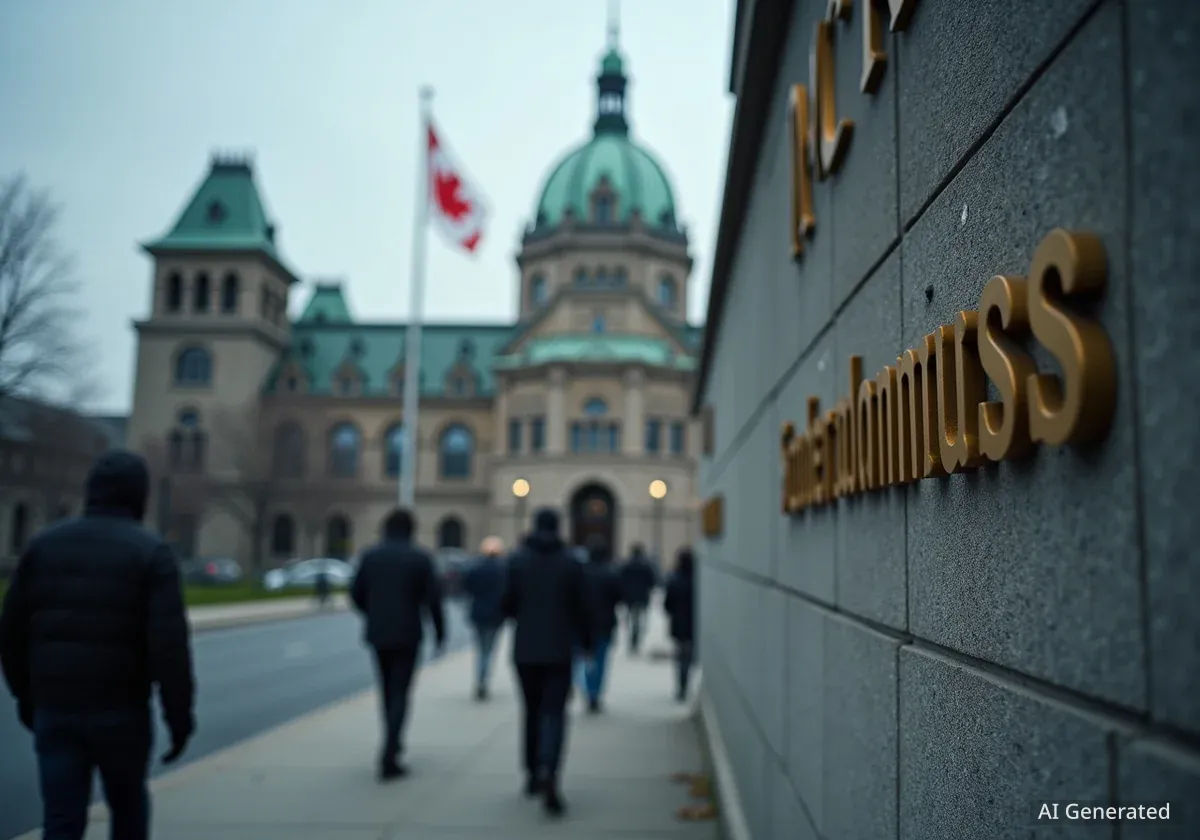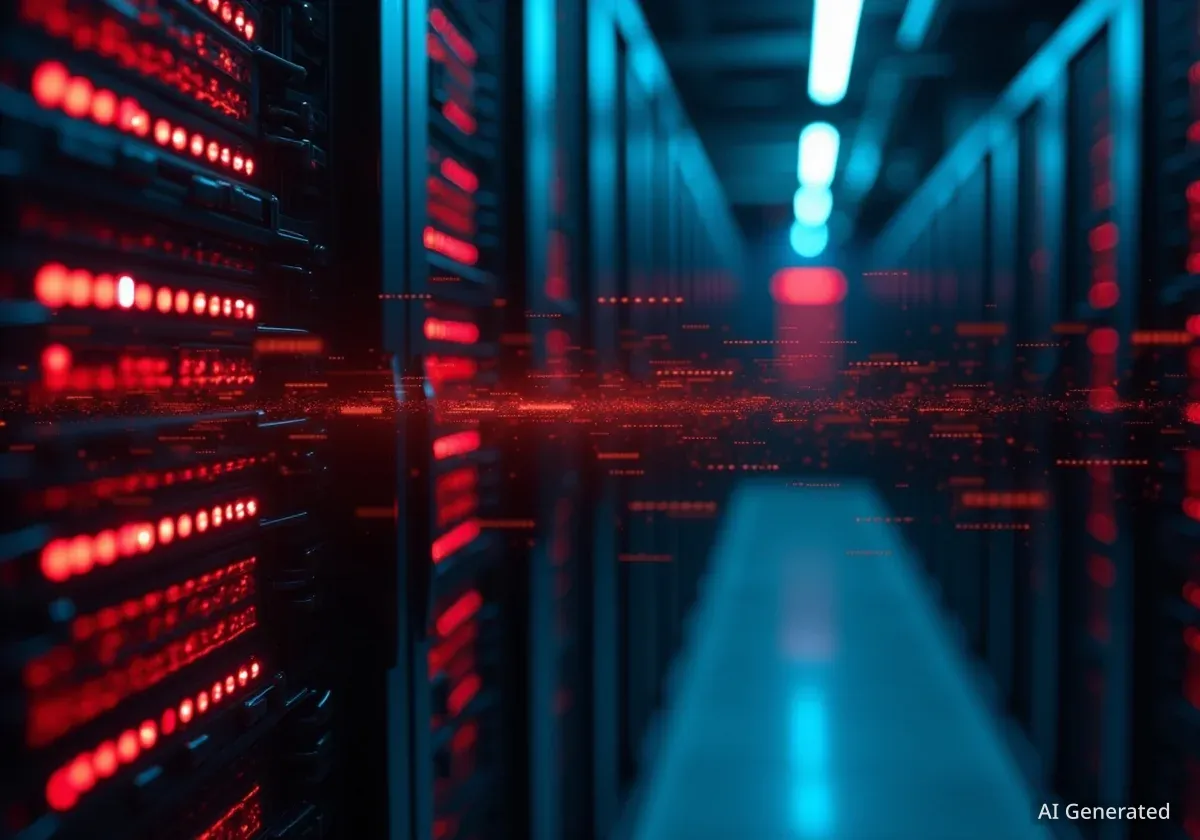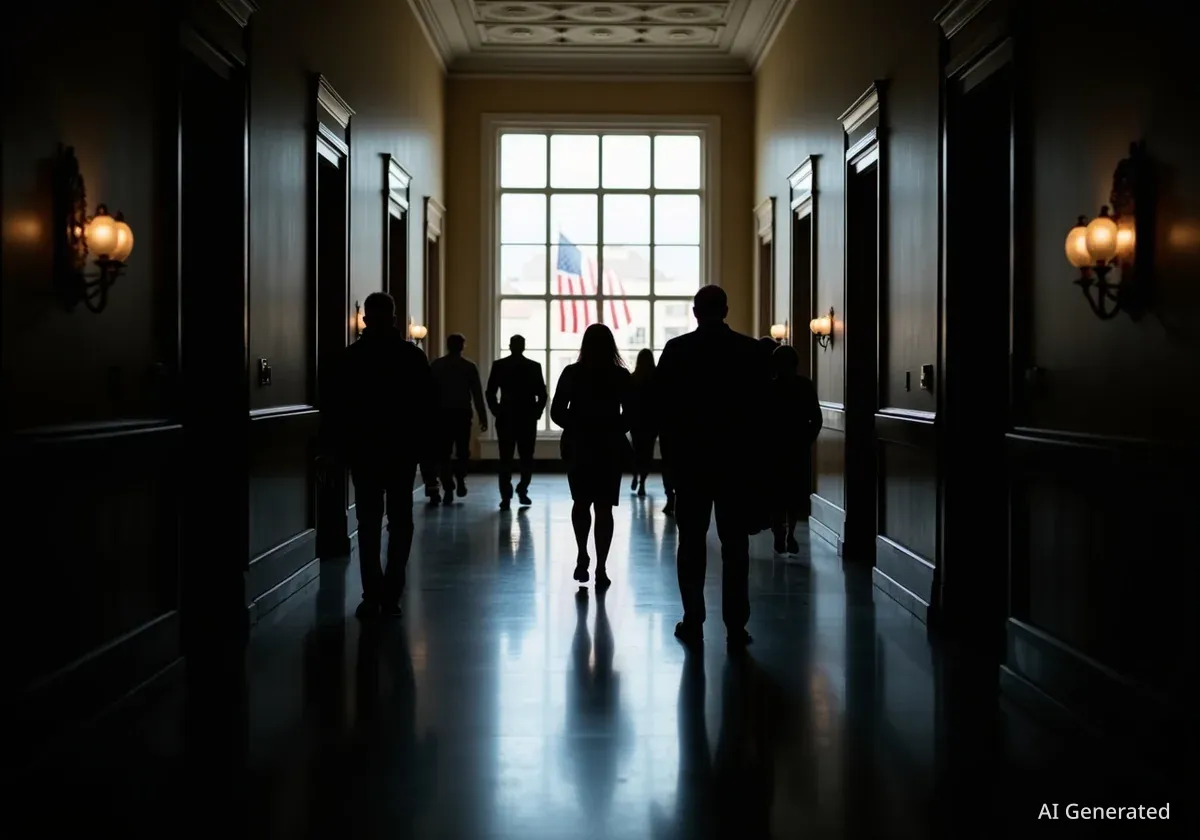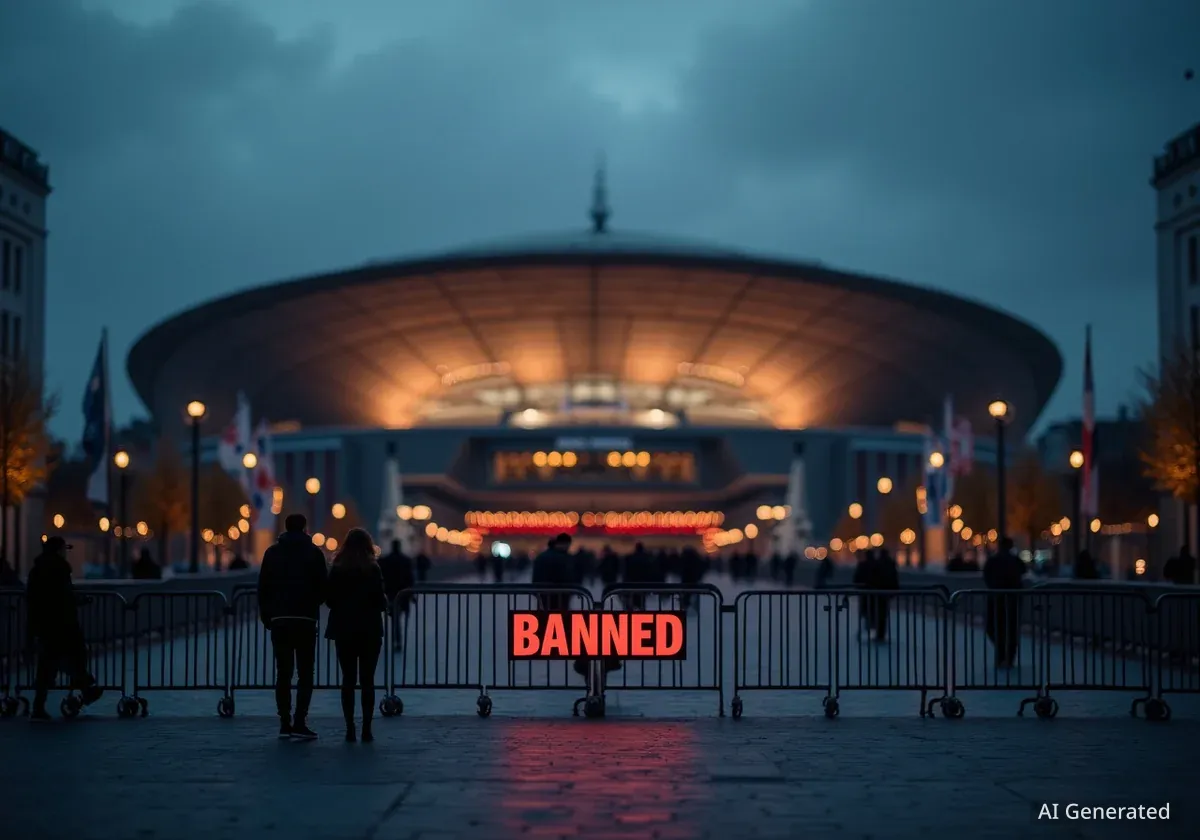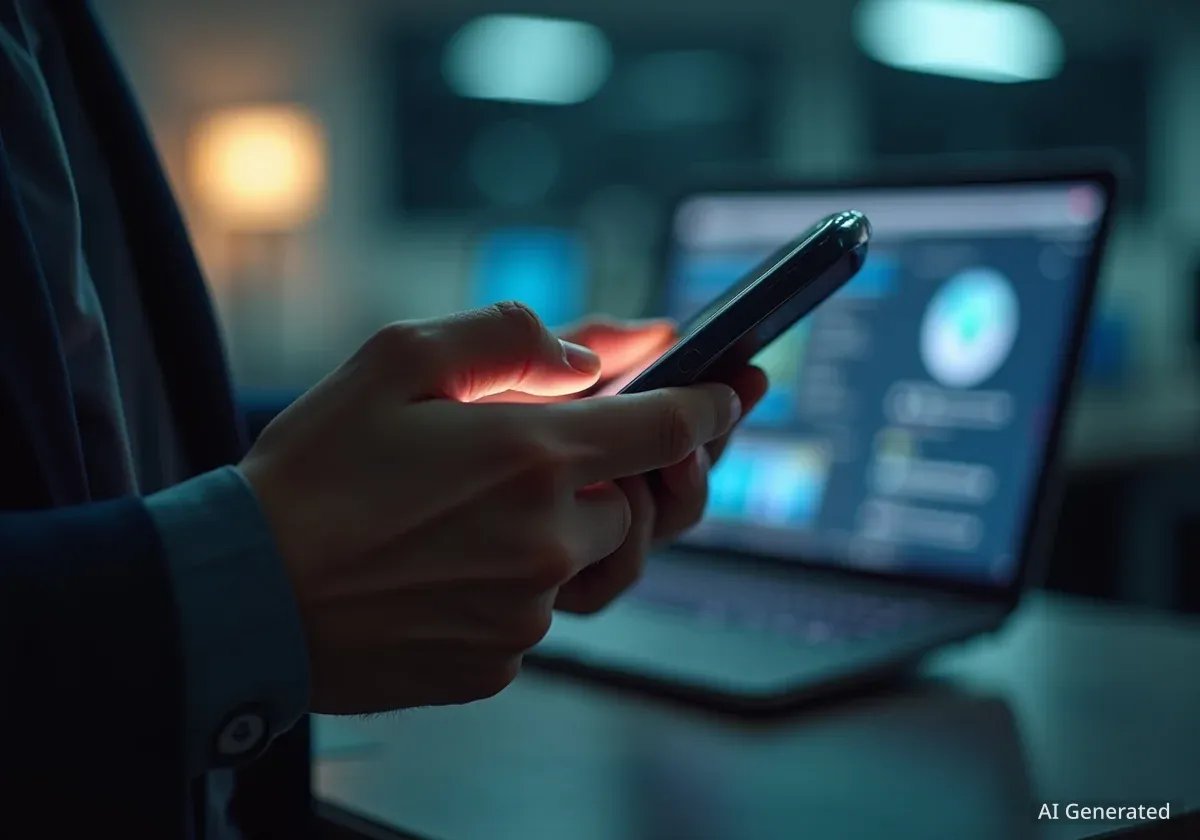The Canadian government has prohibited the Irish-language rap group Kneecap from entering the country. Officials cited the group's alleged endorsement of political violence and terrorist organizations as the reason for the ban. Kneecap was scheduled to perform in Toronto and Vancouver next month.
This decision follows criticism directed at the group for past political statements. These statements have been interpreted by some as glorifying militant groups, including Hamas and Hezbollah. The group has denied these accusations.
Key Takeaways
- Canada banned Irish rap group Kneecap from entering the country.
- Government officials cited alleged support for terrorist organizations.
- Kneecap denies the accusations and plans legal action.
- The group's performances in Toronto and Vancouver are now canceled.
- Hungary previously banned the group for similar reasons.
Government Cites Support for Terrorist Groups
Liberal lawmaker Vince Gasparro, who serves as the parliamentary secretary for combating crime, confirmed the ban on Friday. He stated that Kneecap has "publicly displayed support for terrorist organizations such as Hezbollah and Hamas." Gasparro clarified that these displays go beyond what is considered artistic expression.
Canada maintains a strong stance against various forms of harmful communication. "Canada stands firmly against hate speech, incitement to violence and the glorification of terrorism," Gasparro said in a social media video. He emphasized the distinction between free speech and endorsements of illegal activities.
"Political debate and free speech are vital to our democracy, but open endorsements of terrorist groups are not free speech," Gasparro stated, underscoring the government's position on the matter.
The Canadian government's decision aligns with its national security policies. These policies aim to prevent individuals or groups from entering the country if they are deemed a risk to public safety or national security. The alleged support for designated terrorist entities falls under these criteria.
Kneecap Denies Allegations and Plans Legal Action
Kneecap has strongly refuted the accusations made by Canadian officials. The group asserts that critics are attempting to silence them because of their vocal support for the Palestinian cause. This support has been particularly evident during the ongoing conflict in Gaza.
In an Instagram post, Kneecap responded directly to Gasparro's comments. They described his statements as "wholly untrue and deeply malicious." The group also announced their intention to pursue legal action against the lawmaker.
"We have today instructed our lawyers to initiate legal action against you," the band's statement read. "We will be relentless in defending ourselves against baseless accusation to silence our opposition to a genocide being committed by Israel."
The band insists that they do not support Hezbollah or Hamas. They also state that they do not condone violence. Their public statements, they argue, are expressions of solidarity with a humanitarian cause, not endorsements of militant groups.
Key Fact
Kneecap was formed in 2017 in West Belfast, Northern Ireland. They are known for performing in the Irish language and addressing political and social themes in their music.
International Reactions and Past Incidents
The Canadian ban is not the first time Kneecap has faced restrictions due to their political stance. Hungary previously banned the group, citing similar concerns about their public statements. This indicates a pattern of international scrutiny regarding the band's activism.
The Centre for Israel and Jewish Affairs, a Canada-based advocacy organization, welcomed the decision. They viewed it as a stand against "incitement, hate and radicalization." Another Jewish organization, B'nai Brith, declared the ban a "victory." These reactions highlight the strong feelings surrounding the controversy.
Background
The conflict in Gaza has led to widespread international debate and protests. Many artists and public figures have taken positions on the conflict, leading to both support and backlash. This global conversation often intersects with issues of free speech and political expression.
Earlier this year, in April, Kneecap performed at the Coachella Valley Music and Arts Festival in California. During their performance, they accused Israel of committing genocide against Palestinians. They also stated that the U.S. government enabled these actions.
This performance at Coachella sparked significant controversy. It led to calls for the revocation of the rappers' U.S. visas. Since then, several of Kneecap's scheduled gigs have been canceled as a direct result of these events. The Canadian ban adds to the growing list of challenges the group faces.
Impact on Future Performances and Artistic Freedom
The ban means Kneecap will not be able to perform their scheduled concerts in Toronto and Vancouver. This impacts their tour plans and their ability to reach their Canadian fanbase. The group's legal team will now work to challenge the Canadian government's decision.
This situation raises questions about the boundaries of artistic expression and political commentary. Governments often face the challenge of balancing free speech principles with concerns about public safety and the promotion of violence. The case of Kneecap exemplifies this complex issue.
The group's supporters argue that their statements are political critiques and not endorsements of violence. They believe the ban infringes upon their artistic freedom. Conversely, those who support the ban argue that certain forms of speech, particularly those perceived as supporting terrorism, cross a line that governments must enforce.
The legal battle that Kneecap plans to initiate will likely focus on the interpretation of their statements. It will also examine the evidence presented by the Canadian government. The outcome could set precedents for how similar cases are handled in the future, affecting other artists and activists.
Global Context
Several countries have laws that prohibit the entry of individuals or groups deemed to support terrorism. These laws are often part of broader national security frameworks aimed at preventing radicalization and protecting citizens.
The ongoing debate highlights the tension between cultural expression and national security concerns. As global events continue to unfold, artists and governments will likely encounter more such situations. The Kneecap case is a prominent example of this evolving landscape.
